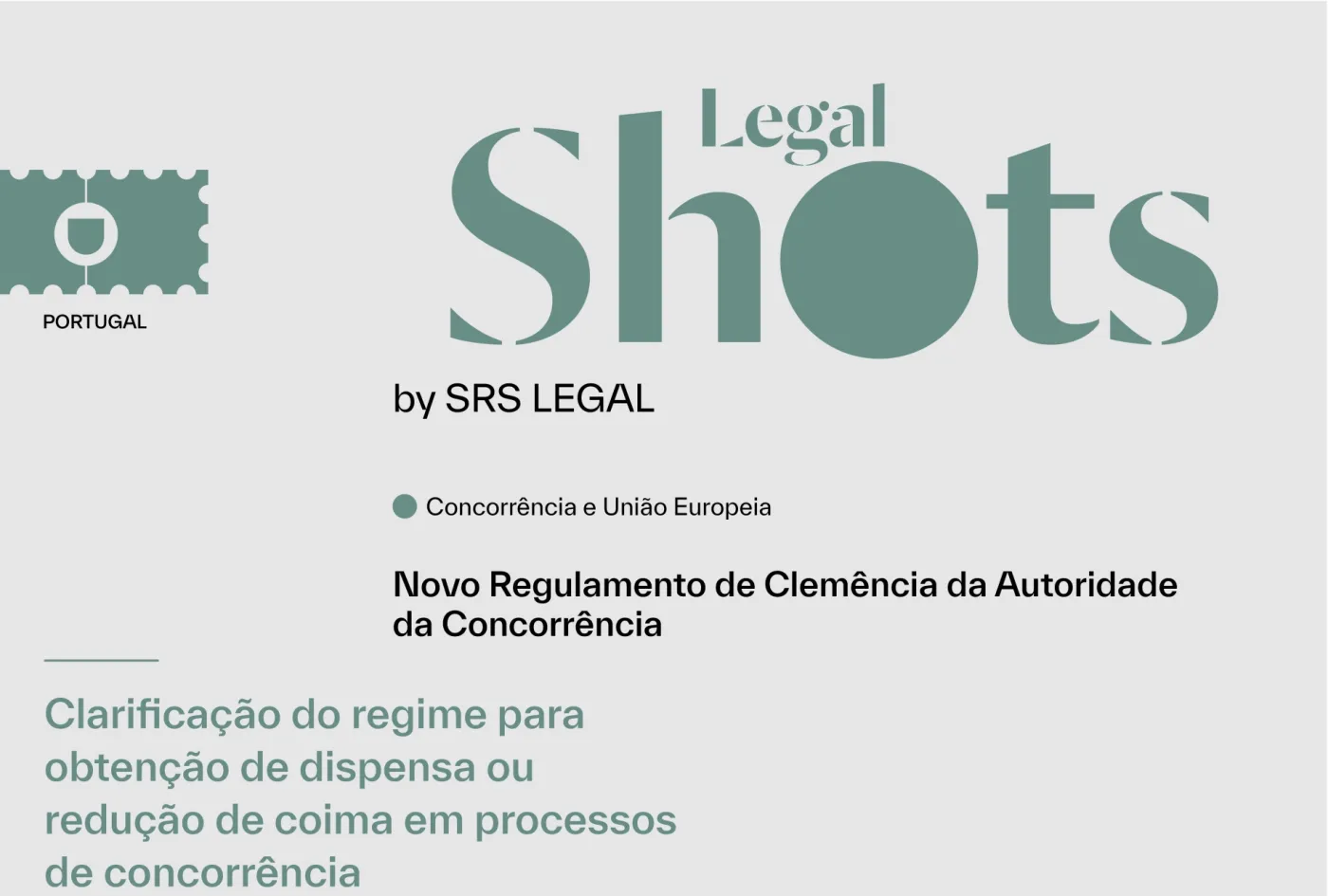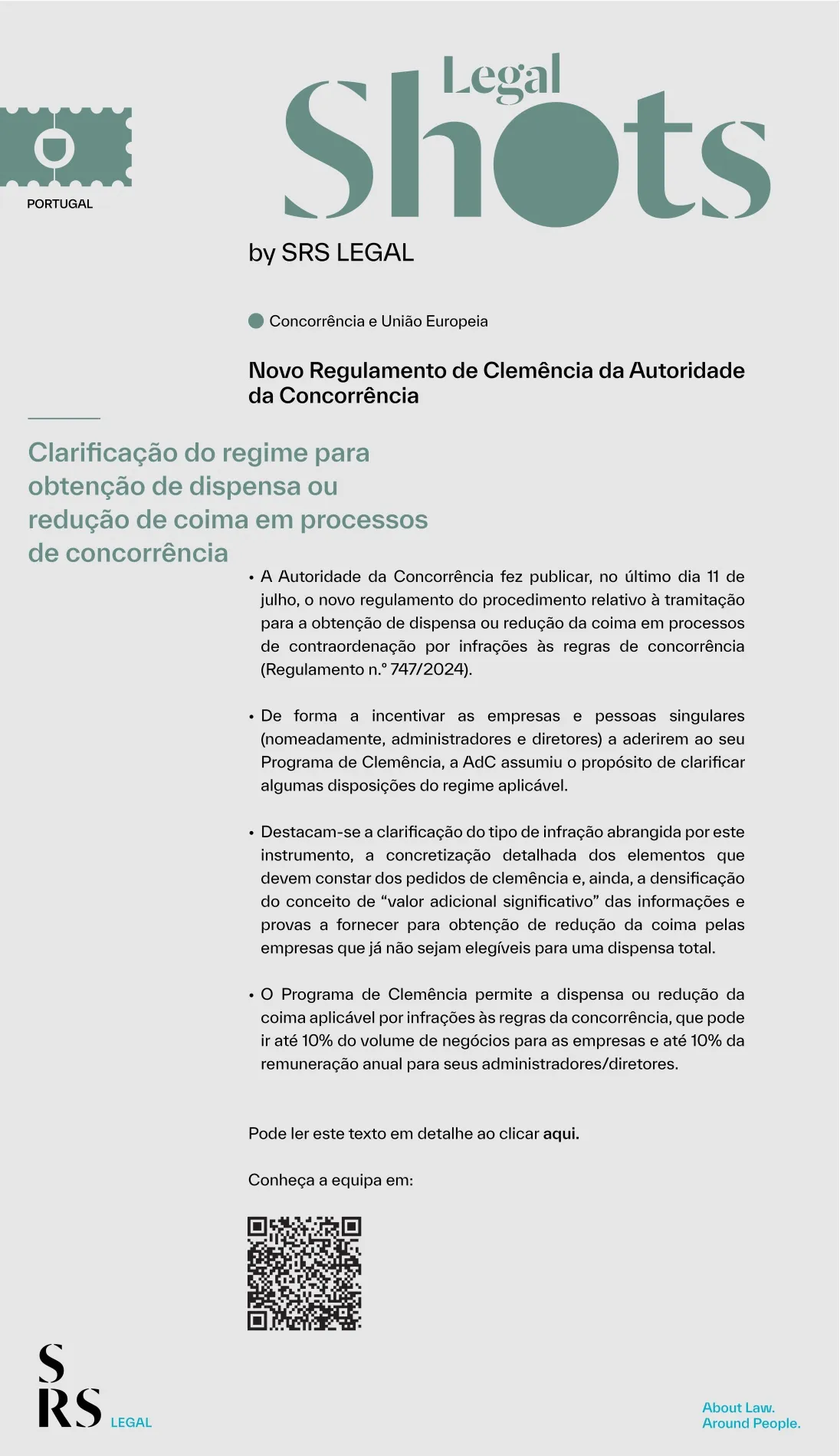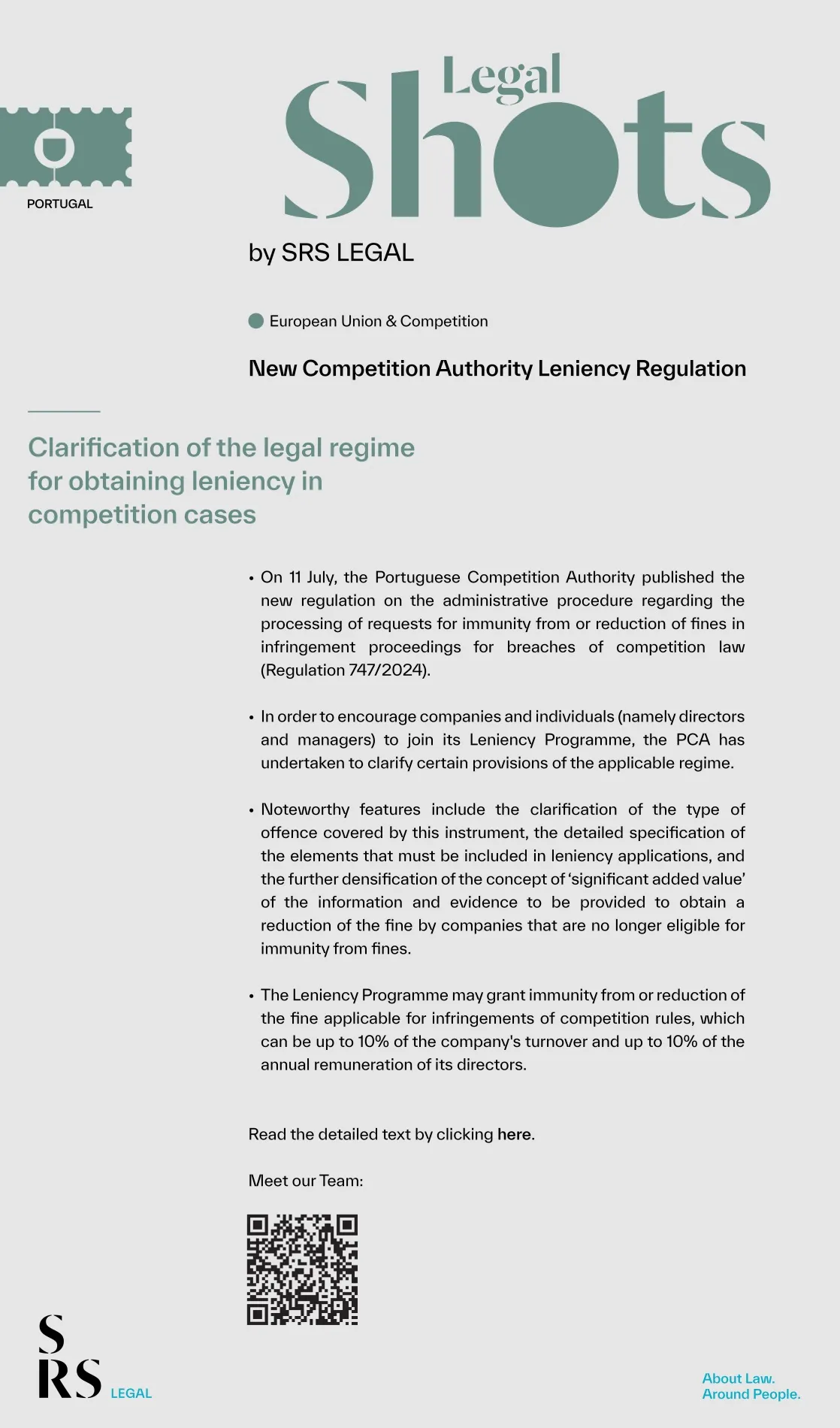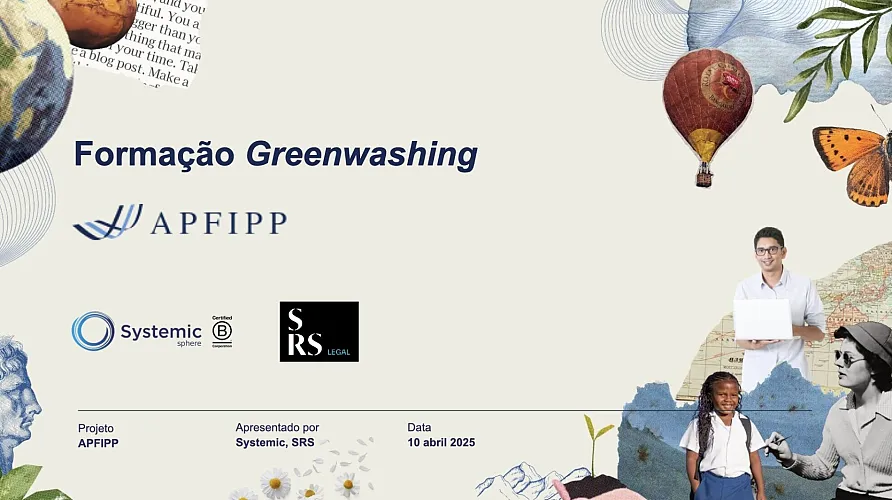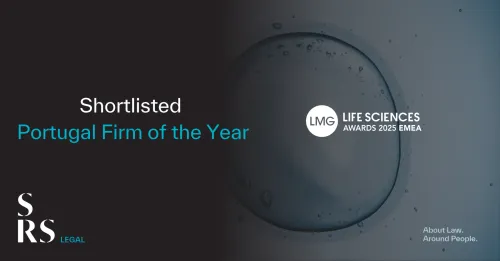Communication
SRS Legal Shots: New Competition Authority Leniency Regulation
Last week, a new regulation of the Portuguese Competition Authority (PCA) was published in the Official Portuguese Journal, establishing the procedure for processing requests for immunity from or reduction of fines in the context of administrative offence proceedings involving agreements or concerted practices between two or more competing companies (‘Regulation no. 747/2024’, of 11 July, henceforth the ‘New Leniency Regulation’).
The New Leniency Regulation was published following the amendment to the competition law regime (Law no. 19/2012, of 8 May, hereinafter ‘Portuguese Competition Act”) by Law no. 17/2022, of 17 August (which transposed the ECN+ Directive of the European Parliament and of the Council into national law, with aims to empower the competition authorities of the Member States to be more effective enforcers of competition law).
It is worth highlighting Article 1, which states that the purpose of the New Leniency Regulation is to ‘establish the procedure for processing requests for immunity from or reduction of fines granted in the context of administrative offence proceedings involving horizontal infringements, as referred to in Article 75’ of the Portuguese Competition Act, having eliminated the explicit reference to cartels that was included in the previous regulation (Regulation 1/2013).
According to the PCA, the inclusion of the expression ‘with a horizontal dimension’ (which refers to agreements or concerted practices between competing companies in each market) was intended to make clear that agreements or concerted practices with this dimension, even if combined with others (namely practices of a complex or hybrid nature, for instance combining horizontal and vertical aspects), are eligible for leniency applications.
The New Regulation also specifies the concept of ‘significant added value’ of the information and evidence provided by leniency applicants, by reference to those already in the PCA's possession, for the purposes of granting a reduction of the fine in cases where the applicants are no longer eligible for full immunity. It is now specifically foreseen that this concept includes information and evidence which, besides being from the period of the infringement, relates directly to the facts and does not need to be corroborated by other evidence, as well as information and evidence that extends the period of the infringement.
Furthermore, the amended version expressly establishes that the applicant for immunity/reduction from the fine may not carry out ‘contradictory or inconsistent acts or acts that undermine their application’, otherwise immunity from or reduction of the fine will not be granted.
The New Regulation also clarifies that the immunity or reduction of the fine will also cover immunity from the application of the ancillary penalty of ban on the right to take part in public procurement procedures or procedures involving the granting of licences or permits, which is provided for in Article 71(1)(b) of the Portuguese Competition Act for cases in which the anti-competitive practice is related to procedures of this nature.
Additionally, the New Regulation complements other provisions of the Portuguese Competition Act, namely those set out in Articles 80-A to 80-E, with the purpose of clarifying how leniency applications should be presented, from a formal and material point of view.
According to the PCA, this new regulation is intended, amongst other objectives, to increase the number of requests for immunity from or reduction of fines, as well as to improve and guarantee the efficiency of the respective procedures.
The Leniency Programme may grant immunity from or reduction of the fine applicable for infringements of competition rules, which can be up to 10% of the company's turnover and up to 10% of the annual remuneration of its directors. To qualify for immunity from or reduction of the fine, the company and/or individual must report the restrictive practice, including their own participation, and cooperate with the PCA throughout the investigation, as well as providing the Authority with all the information and evidence in its possession that proves the existence of such a practice.

